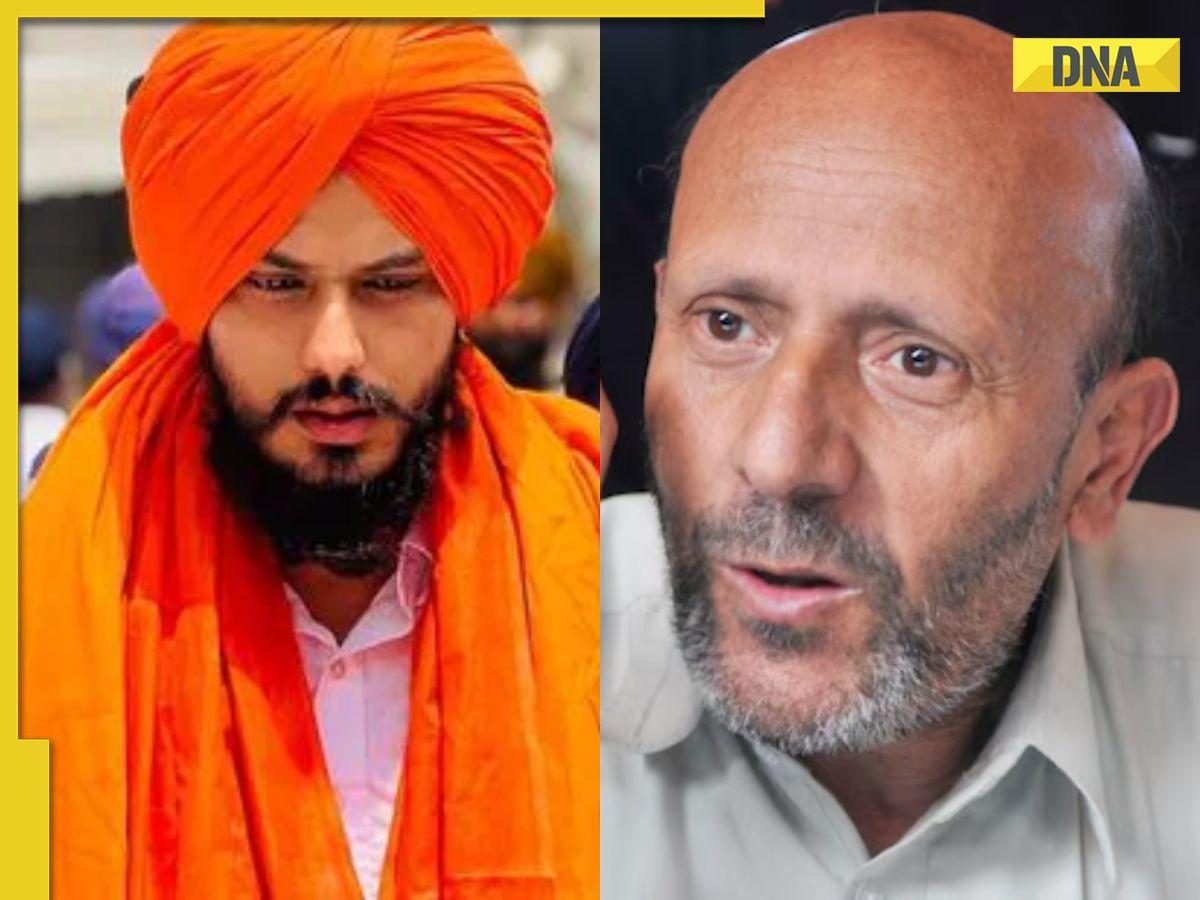
The Lok Sabha election results for 2024 were officially declared on Tuesday, June 4. The political landscape of India will once again be dominated by the BJP-led National Democratic Alliance (NDA), which secured a decisive victory with 292 seats. Amidst this significant win, a noticeable turn of events has unfolded involving two independent candidates—Radical Sikh preacher Amritpal Singh and Sheikh Abdul Rashid, popularly known as ‘Engineer Rashid.’ Both individuals are currently incarcerated on terror charges but have managed to clinch the Khadoor Sahib and Baramulla seats respectively.
This unique situation raises the pertinent question: Can these newly elected Members of Parliament (MPs) take the oath while they remain in prison? The answer lies in a somewhat intricate legal framework that permits them to be sworn in as MPs but restricts their participation in parliamentary proceedings.
Constitutional expert and former Lok Sabha Secretary General, PDT Achari, shed light on the matter, emphasizing that taking the oath as an MP is a constitutional right. However, both Amritpal Singh and Engineer Rashid, being imprisoned, would require permission from the authorities to be escorted to Parliament for the oath-taking ceremony. Post ceremony, they would have to be immediately returned to jail as per legal stipulations.
Achari cited Article 101(4) of the Indian Constitution, which addresses the absence of members from Parliament without the prior sanction of the Chair. After taking their oaths, these MPs must formally notify the Speaker of their inability to attend parliamentary sessions, citing their current legal circumstances. This notification prompts the Speaker to refer the matter to the House Committee on Absence of Members from the Sittings of the House. Subsequently, the committee is tasked with recommending whether these MPs should be allowed to remain absent from House proceedings, although their recommendation would still need to be approved through a voting process by the full House.
The story doesn’t end there. There is a considerable risk involved for both these MPs. If either Engineer Rashid or Amritpal Singh are convicted of the charges against them, they would immediately forfeit their seats in the Lok Sabha.
. This outcome is rooted in the landmark 2013 Supreme Court judgment, which overhauled Section 8(4) of the Representation of the People Act. Prior to this judgment, MPs and MLAs convicted of crimes were granted a three-month window to appeal their conviction without losing their parliamentary seats. The court’s decision revoked this cushion, ensuring that convicted lawmakers lose their positions immediately upon conviction.
The legal hurdles facing Amritpal Singh and Engineer Rashid are extensive but not insurmountable. The history of Indian democracy does not shy away from juxtaposing complex legal statutes and individual rights. While their electoral victories signify a significant personal and political achievement, translating these victories into active participation in parliamentary duties remains a contentious issue.
Constitutional experts continue to debate the ramifications of allowing imprisoned individuals to take oath as MPs. This scenario is revisiting legal and ethical debates that have long lingered in the political narrative of the country. This episode also underscores the broader question of criminalization in politics and the urgent need for legal reforms to address such anomalies coherently.
In essence, while the Indian Constitution secures the right to be sworn in as an MP for those who are elected, the practical and ethical considerations of allowing incarcerated individuals to actively participate in parliamentary proceedings continue to ignite fervent discussions. As India progresses towards a more refined democratic ethos, episodes like these trigger necessary reflections on the alignment of legal frameworks with democratic principles. It underscores the perpetual evolution of legalities in a dynamic political landscape.
The nation’s gaze remains fixed on the unfolding developments, as these two newly elected MPs navigate the labyrinthine legal corridors, seeking to balance their roles as representatives of the people with their prevailing legal predicaments. The forthcoming decisions from the authorities will be critical in setting precedents for similar cases in the future, further shaping the narrative of Indian parliamentary democracy.
Meanwhile, stay connected with us through the DNA app, available for download on the Google Play Store, where we will continue to bring you the latest updates and comprehensive analyses on this evolving story.












